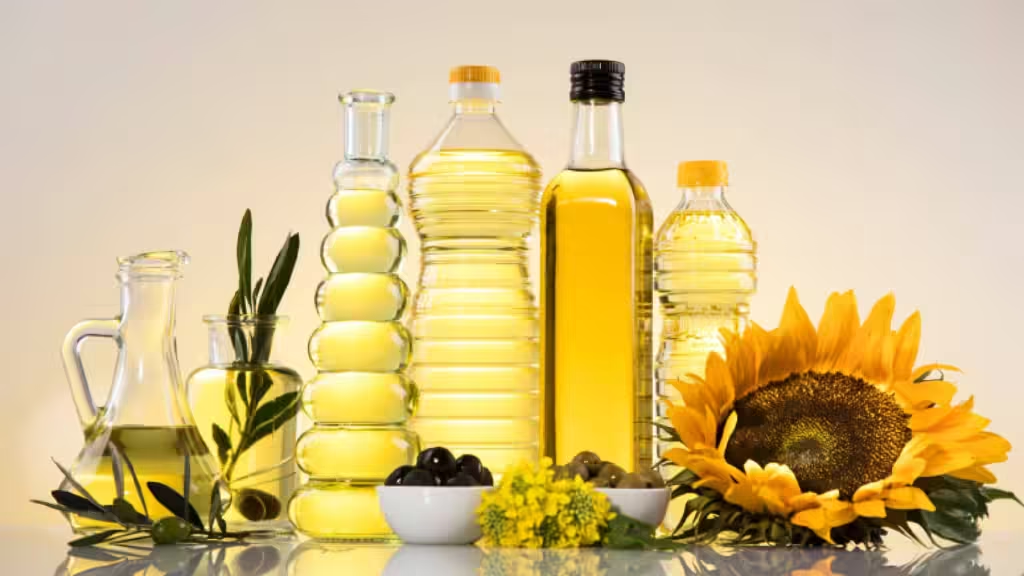Heart disease is the leading cause of death in the world, including India. One major reason? The cooking oil you use every day. According to the World Health Organization (WHO), unhealthy diets — especially those rich in saturated and trans fats — significantly raise the risk of cardiac arrest and heart attacks.
Let’s take a closer look at five cooking oils that may do more harm than good for your heart.
1. Palm Oil: Cheap but High in Saturated Fat
Palm oil is found in many Indian kitchens and packaged snacks. It contains up to 50% saturated fat, which can raise bad cholesterol (LDL) and block arteries. Over time, this increases the risk of heart attack and stroke.
Fact: A 2015 study linked high palm oil intake to an increase in heart disease in South Asian countries.
2. Coconut Oil: Popular but Misleading
Coconut oil is often seen as natural and healthy, but it’s made up of over 80% saturated fat — even more than butter! While it may raise good cholesterol (HDL), it also raises LDL, which is bad for heart health.

3. Vanaspati Ghee: Loaded with Trans Fats
Vanaspati or hydrogenated oil is used in many fried and processed foods. It contains trans fats, which are directly linked to heart disease, diabetes, and obesity.
Fact: Trans fats are so harmful that the FDA banned them in the U.S. in 2018.4. Soybean Oil: Too Much Omega-6 Is Harmful for Your Heart
Soybean oil is one of the most commonly used cooking oils in India and around the world. It is often marketed as a healthy choice because it contains polyunsaturated fats, especially omega-6 fatty acids. While omega-6 is important for the body, having too much of it — especially without balancing it with omega-3 — can be dangerous.
When omega-6 levels are too high, it can trigger inflammation in the body. This includes the inflammation of blood vessels, which increases the risk of high blood pressure, heart disease, and even stroke. Many processed and packaged foods use soybean oil, which adds to this hidden danger.
5. Cottonseed Oil: Found in Fast Food and Processed Snacks
Cottonseed oil is often used in the food industry because it is cheap and has a long shelf life. However, it’s not a healthy option. This oil is heavily refined and processed, which removes most of its natural nutrients and adds harmful compounds.
Cottonseed oil contains a high level of polyunsaturated fats, which can easily oxidize when heated. This oxidation produces free radicals, which can damage your body’s cells and increase the risk of chronic diseases, including heart problems. Regular consumption of cottonseed oil, especially through fast food and fried snacks, can be harmful to your heart health.
Better Oils for a Healthy Heart: What You Should Use Instead
If you want to keep your heart strong and avoid problems like heart attacks or cardiac arrest, it’s important to choose heart-friendly oils. These oils are rich in monounsaturated and polyunsaturated fats, which help lower bad cholesterol (LDL) and raise good cholesterol (HDL).

Here are some of the best options:
Avocado Oil – Contains heart-protective oleic acid. Ideal for high-heat cooking.
Olive Oil (Extra Virgin) – Full of antioxidants and healthy fats. Great for salads and light cooking.
Mustard Oil – A traditional Indian oil with a strong flavor. Rich in omega-3 and monounsaturated fats.
Canola Oil – Light, neutral in taste, and low in saturated fat. Good for all-purpose cooking.
Use them in moderation for a healthy lifestyle.
Also Read :
FAQs About Cooking Oils and Heart Risk
1. Which cooking oil is the worst for heart health?
Vanaspati ghee, due to high trans fat content.
2. Are all saturated fats bad?
Not all, but high intake raises heart disease risk.
3. Can coconut oil be used in moderation?
Yes, but sparingly and not as the main oil.
4. What oils are best for daily cooking?
Olive oil, mustard oil, and canola oil are good choices.












More Stories
Packaged food hurting productivity, mental health in young Indians: Report
Do only vegetarians suffer from vitamin B12 deficiency? Doctor busts 5 myths and explains how supplements work
Amul, Country Delight & Mother Dairy milk ‘Fail Quality test’, coliform bacteria levels exceed FSSAI limits.